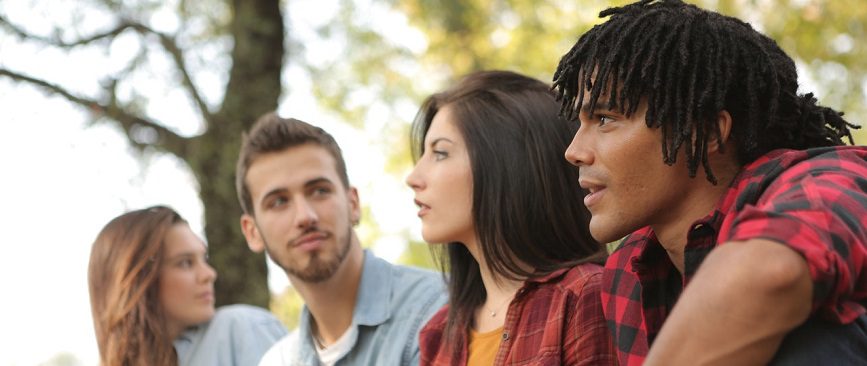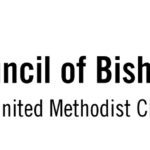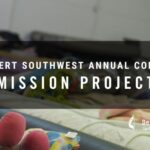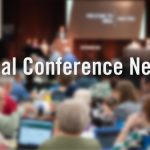In Jesus’ discussion with a legal expert in Luke 10:27, we hear what God wants from us; “You must love the Lord your God with all your heart, with all your being, with all your strength, and with all your mind, and love your neighbor as yourself.” (Luke 10:27, Common English Bible-CEB) Love your neighbor as yourself. Hmmm, just who is he referring to—my extended family, the people who live nearby, people who look like me and act like me? The legal expert wanted that clarified and asked Jesus, “And who is my neighbor?” In the parable, Jesus makes it clear that his definition of neighbor is very wide and broad even shocking.
It seems that question is still very relevant today. Who is my neighbor? Who should I love as I love myself? As much as I hope that we have evolved in our ability to recognize the value of all different colors and cultures; as much as I hope we have learned to love our neighbors as ourselves, recent events have once again shattered that optimism. I’m not convinced that our society has backslid into racism; I think the cell phone is exposing what has been known and experienced in communities of color for a long time, but hidden from many of us in the dominant culture. The sin of racism is still alive in 2020 and diminishing, even ending, the lives our neighbors.
The shocking murders of three African Americans, George Floyd, Ahmaud Arbery, and Breonna Taylor has confronted us with the reality that people of color deal with regularly. If you are black or brown, often you are guilty until proven innocent. This perversion of justice, this perversion of the American ideal is deeply offensive. Valuing people and treating people differently because of the color of their skin or because they come from a different culture is deeply offensive. It is a spiritual matter as well as a political matter. God made humankind in many colors and shapes. If you look at creation, God designed creation with incredible diversity. Look at the birds of the air, they come in all kinds of colors and shapes. Look at the fish of the sea, they come in all kinds of colors and shapes. These differences like human differences are part of God’s design and plan for creation, a design that God pronounced as supremely good (Genesis 1:31,CEB) To devalue someone and especially to murder someone because they look differently or come from a different culture insults and hurts the Creator who made them. Diminishing another person’s life because they are of a different race or culture violates our commandment to love our neighbor.
I think part of what has shaken me so deeply over this last week is that I don’t know what to do to end the sin of racism. I don’t know how to make this better for my neighbors. We already have laws against murder or assault. Laws aren’t enough. How do we change the hearts of people? What can I do other than weep, lament, and pray? Here is where I’ll start:
- I think the first thing is to look within my own heart and examine my own deep seeded beliefs. Do I truly love my neighbors as myself?
- Another thing I can do is intentionally build relationships with people who look differently than me. When you don’t know and love any people who look differently than you, it is much easier to make broad generalizations. When I think of cherished friends being the target of racism, it takes on a personal and urgent priority.
- Thirdly, I need to learn from those who live with racism every day. We have two conference committees that address race, our Ethnic and Local Church Concerns and our Committee on Religion and Race. These committees are working on ways to help us become more competent with other cultures. I am so used to being in the dominant culture that I don’t see or understand what it is like for my neighbors. At a workshop, we did an exercise to help us grasp what it is like for someone to process communications in a language that is not their first language. It was eye-opening! Our conference committees will lead us to be more compassionate.
- Fourthly, if we see racist acts or attitudes, speak up especially if you are part of the dominant culture. If one of those police officers around George Floyd had spoken up and said, “Stop! This isn’t right.” The outcome might have been very different. When racism becomes a shameful, scorned thing to the vast majority of our culture, it will diminish.
- Finally, I will continue to seek and pray that God reveals other ways I can learn to love my neighbors as myself.
Paul in his letter to the Galatians paints us the picture of the Christian response to different races and cultures. He said, “There is neither Jew nor Greek; there is neither slave nor free; nor is there male and female, for you are all one in Christ Jesus.” We are one in Christ. We are one family where all are valued, all are loved, all are creations of God. I hope you will join me in doing some soul searching, in praying for an end to racism and in acting for justice.






